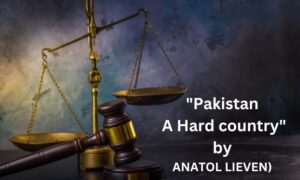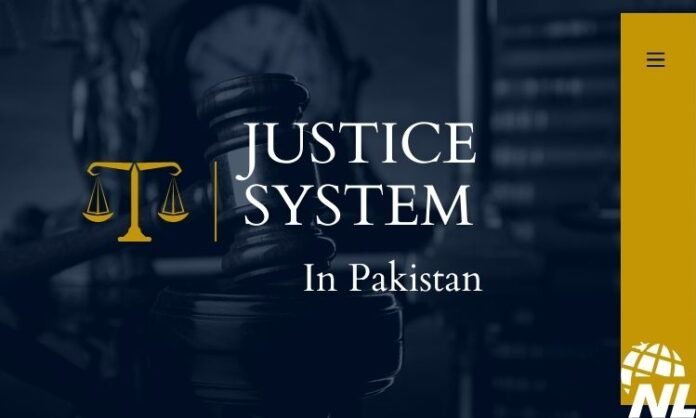Pakistan has both formal and informal laws. State law and sharia law are both formal, written codes, customary laws are informal and unwritten, but immensely strong, because they reflect the culture of the people. All these laws are implemented in Pakistan as well as in India to overcome criminality. Informal justice is much stronger than formal justice due to its strict implementation and awareness among the tribal people. All the details of formal and informal laws have been explained in the book “Pakistan A Hard country” written by a foreigner Anatol Lieven who visited Pakistan before writing his book to understand the traditions and cultures of Pakistan. In this book, he explained the judicial system of Pakistan which stands as the least one in the world unfortunately. I read the portion on justice in his book. Firstly, customary law which is often called ‘Jirga’ in Pakistan and ‘panchayat’ in India is considered the strongest law in tribal areas. Anatol told the story of Sardar when he met him and asked about the Jirga system.
If you want to know more about the judicial system and justice in Pakistan click here:
The Sardar described his judicial role as follows:
In my tribe, the poorest man if he gets into trouble will be helped by his fellow tribesman, led by me and my cousins. Even if he drives a rickshaw or sells boot polish he can look anyone in the eyes because he has a chief and a powerful tribe behind him.
Every month, hundreds of people come to me or my cousins to have their problems solved. If it is a simple case we make decisions ourselves. If it is more difficult, we call a jirga, and from the jirga, people are chosen as a committee to look into the case. we choose people depending on the nature of the case. If it is a transport problem, we choose people with transport experience. If a business, then a businessman. If the parties to the case want it to be judged according to the sharia, we include a mullah. We make the judgment, and we enforce it.

For example, a few months ago one boy from the tribe killed another boy. we are arranging compensation. They are both from our tribe, so that was quite easy. A more difficult case recently was when one of our women was raped by two young men from another tribe. We caught the men, and our tribal jirga met, and called witnesses according to the shariah and modern law. We consider the elders of another tribe. They offered monetary compensation but we can only take this in cases of murder or wounding. To take it in case of the rape of our women would disgrace us. Then they said, you can kill the older boy, but please spare the younger one. So we decided to kill the older boy and slit the nose and ears of the younger one… The older one was twenty-something, the younger one is sixteen…
‘Rough justice,’ I suggested.
Yes if had gone to the government law it would have taken years, and in that time they would have been free to roam the streets raping more girls and laughing at us.
‘Is this accord to Pakistani law?’ I asked:
There is no law! If there is a law in this country, why would all these people come to me for help? I don’t go looking for this work. I have an important business in Karachi that I have to leave behind to do this. People came to my cousins and me because they respects us, not just because of our titles but because they know our character and know that we are fair.
These are the two types of views about Pakistan’s justice system. Unfortunately, Pakistan is passing through the worst kind of injustice. There is no role of law in this country and everyone is violating the law on the behalf of his relations with judges and other powerful people. In a recent case that is running on social media about a poor Baloch Lady Girra Naz, her two sons were killed by a Balochistan provincial minister Sardar Abdur Rehman Kitharan. Girra Naz is seeking justice from the government law but the opponent party Sardar is enough strong that no one is going to help her. This is the formal law of Pakistan which is unable to protect the poor from such kinds of barbarians. Due to the poor justice in Pakistan, the judiciary is ranked the third most corrupt institution in the world. However, this issue can be resolved by taking strict measures at a higher level. First and foremost this is the transcperancey for everyone equally.
No one should be higher than the law.





